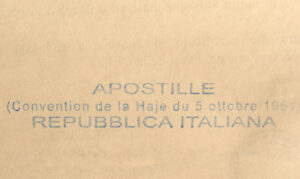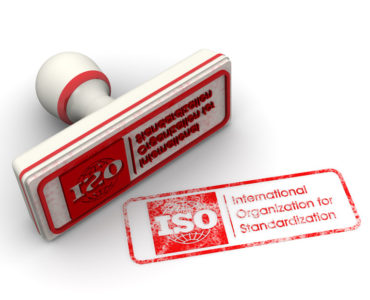At GTS we receive frequent requests for official translation services. Here are two examples:
I would like 2 driving record translations for driver‘s licenses from English to French. How long for expedited translation and delivery? Is your service officially recognized by the French government as an official translator for official documents?
I need my triple sealed Divorce papers translate from English to Portuguese to make my divorce from a former marriage legally in Brazil. In Brazil they use to ask for a “tradução juramentada of the document” (sworn translation)?
The response to these kinds of questions can be tricky, as requirements vary widely from country to country. Moreover, the requirements in some countries (like Switzerland and Germany) vary from region to region. This post reviews the requirements and standing of sworn translation in various countries around the world.
It must be noted that the responsibility to check the certification requirements for translations lies entirely on you, the person who needs the translation to be submitted. So before ordering the translation, check carefully with the body you are submitting it to. Once you have learned what is required, communicate this information with the translation provider and request a service that meets the requirement.
Certification may require the translator to appear in a public notary or lawyers‘ offices, and present both the translation and the original document.
Table of Contents
- France
- The Netherlands
- Brazil
- Italy
- Germany
- Spain
- United States
- South Africa
- Mozambique
- Belgium
- United Kingdom
- Switzerland
- Austria
- Mexico
- Portugal
France
Being officially recognized by the French government as an authorized translator for official documents typically involves specific certifications or accreditations. In France, translators who are authorized to translate official documents are often referred to as traducteurs assermentés (sworn translators). These individuals have undergone a rigorous certification process and are officially appointed by French courts. This certification allows them to provide legally binding translations of official documents, such as birth certificates, marriage certificates, legal contracts, and more.
The Netherlands
In the Netherlands, sworn translators must register with the Register beëdigde tolken en vertalers (Rbtv), overseen by the Bureau Wbtv under the Legal Aid Board. To be included, translators need relevant qualifications and proficiency in their language pairs. After meeting these requirements, they are sworn in at a Dutch court, committing to faithfully translate documents. This official recognition authorizes them to produce legally valid translations for documents such as birth certificates, legal contracts, and educational credentials. Their work is crucial in legal settings, and they must maintain their skills through ongoing education. While their certification is recognized in the Netherlands, international recognition varies, and additional certification or apostilles might be required for documents used abroad.
Brazil
In Brazil, the system of tradução juramentada (sworn translation) is essential for the legal validation of foreign documents. Sworn translators, officially recognized by the Commercial Board of their respective state, are authorized to translate and certify documents like birth certificates, academic transcripts, and legal contracts. Their translations are legally equivalent to the original documents and are required for official use in governmental and legal contexts. The appointment as a sworn translator is achieved through a competitive examination, ensuring linguistic proficiency and accuracy. Sworn translations in Brazil are crucial for immigration, business, and legal proceedings, especially in a globalized environment where document authenticity is paramount. This system guarantees the integrity and legal recognition of foreign documents within the Brazilian legal framework.
Italy
In Italy, the traduttore giurato system pertains to sworn translators, legally recognized to certify and translate documents for official use. These translators are accredited by local courts, a process that typically involves passing an examination demonstrating linguistic proficiency and legal knowledge. Once accredited, traduttori giurati can officially translate and validate documents like legal contracts, court documents, and administrative paperwork, ensuring their legal equivalence to the original. This certification process is essential in legal and governmental contexts, where document authenticity and accuracy are paramount. Sworn translations are crucial for international dealings, immigration, and cross-border legal matters, bridging language barriers within the legal framework. The traduttore giurato plays a vital role in upholding the integrity and accuracy of legal documentation in Italy’s multilingual and interconnected environment.
To become a traduttore giurato in Italy, one must successfully pass an examination at a local court, demonstrating proficiency in language and legal terminology. After passing, the court officially appoints the individual as a sworn translator, and they are registered with either the court or the local Chamber of Commerce. Those seeking a qualified traduttore giurato can consult their local court or Chamber of Commerce, which often maintain registries of accredited translators. Professional associations like the Associazione Italiana Traduttori e Interpreti (AITI) and various online directories also provide access to such professionals, although AITI does not directly accredit them.
Germany
Sworn translators in Germany, referred to as beeidigter Übersetzer or vereidigter Übersetzerare are authorized by the courts or relevant state authorities to provide officially recognized translations. This authorization is crucial for certain German translation services such as court documents, notarial certificates and administrative documents that require certified translation.
To become a sworn translator in Germany individuals are usually required to hold a professional qualification in translation, linguistics, or a related field, often obtained from a university or recognized institution. Additionally, practical experience in translation, particularly in legal contexts, is essential. Many German federal states mandate passing a rigorous state-administered examination that assesses language skills, translation competence, and knowledge of legal terminologies. Candidates must also be of good character, evidenced by the absence of a criminal record, as the role involves handling confidential information. After meeting these criteria, candidates apply to the relevant authority, and upon approval, take an oath of accuracy and professionalism. Continued professional development is typically expected to maintain their skills and knowledge.
To locate a beeidigter Übersetzer or vereidigter Übersetzer in Germany, you can contact local or regional courts, as they often have directories of sworn translators. The Chamber of Commerce in some areas also maintains such registries. Professional translation associations, like the BDÜ, offer directories of their members, including sworn translators.
Spain
In Spain, the system for sworn translation is managed by the Spanish Ministry of Foreign Affairs and Cooperation, which accredits translators to become Traductores-Intérpretes Jurados. These sworn translators are authorized to provide translations with legal validity for administrative and judicial purposes. The accreditation process involves passing a rigorous examination that assesses the candidate’s language proficiency and understanding of legal and administrative terminologies. Once accredited, these translators can append their signature and official seal to their translations, thereby certifying them as official and legally valid throughout Spain. This is crucial for a range of documents, including legal contracts, court documents, educational certificates, and various government-related documents. Sworn translators play a vital role in Spain, a country characterized by its diverse regional languages and significant international interactions. They are expected to maintain high standards of accuracy and professionalism, ensuring that their translations uphold the integrity of legal and administrative processes in Spain’s multicultural and multinational context. Their accreditation, once obtained, does not typically require periodic renewal, but staying updated with language skills and legal terminology is essential for their ongoing professional practice.
In Spain, you can find sworn translators and interpreters) through The Spanish Ministry of Foreign Affairs and Cooperation, which maintains an updated list of sworn translators and interpreters on their website.
United States
In the United States, the approach to court-recognized translators is decentralized, with no uniform federal certification for translators. However, various systems are in place to address the need for qualified language assistance in legal contexts. For instance, court interpreters, particularly crucial for non-English speakers in legal proceedings, are catered for through certification programs run by federal and state courts. The Federal Court Interpreter Certification Examination (FCICE) is an example, offered for Spanish interpreters, and several states have similar certifications for other languages. When it comes to translating legal documents, though there’s no specific court-recognized national certification, professional translators are often employed, sometimes accompanied by a notarized certification of accuracy. Additionally, the American Translators Association (ATA) provides a respected certification for translators in various language pairs, which, while not exclusively for court purposes, is recognized for professional translation work in the U.S. It’s also worth noting that state-specific regulations and requirements may apply to translators in legal settings. Therefore, for legal translations and court proceedings in the U.S., it is essential to engage translators or interpreters who are appropriately qualified and certified as per the relevant state or federal guidelines, ensuring accuracy and adherence to legal standards.
South Africa
In South Africa, a Supreme Court Sworn Translator is a professionally accredited individual recognized by the High Court for their ability to provide legal document translations. This role involves undergoing a rigorous accreditation process and taking an oath before the High Court to deliver accurate and faithful translations. These translators are essential in a country with 11 official languages, as they ensure that legal documents like court papers, contracts, and government documents are accurately translated and legally binding. Adhering to high professional and ethical standards, their work is crucial in legal and official settings. While primarily recognized in South Africa, their translations are often used internationally with appropriate verification. Individuals seeking such services can find them through legal directories, the High Court, or relevant professional bodies.
Mozambique
The official language of Mozambique is Portuguese. As a former colony of Portugal, Mozambique adopted Portuguese as its official language upon gaining independence in 1975. Mozambique has sworn translators, also known as official or certified translators. These individuals are authorized by the Mozambican government to provide official translations of documents, ensuring their legal validity within the country and sometimes abroad. Sworn translators play a crucial role in facilitating communication across languages within the legal system, especially given the diversity of languages spoken by the populace. The Maputo Judicial Court is one of the entities that certifies sworn translators.
Belgium
In Belgium, the system for sworn translation is structured around translators who are officially recognized by the Belgian courts. These sworn translators are authorized to provide official translations of documents that are required for legal and administrative purposes. To become a sworn translator in Belgium, a translator may be required to pass an examination or show proof of professional qualifications in translation. Once they meet these requirements, they must take an oath in front of a court, after which they are officially registered as a sworn translator. This registration allows them to translate and certify documents such as birth certificates, marriage certificates, legal contracts, and other official paperwork. The translations done by these translators are legally binding and are accepted by various governmental and judicial authorities in Belgium. The exact process and requirements for becoming a sworn translator can vary depending on the region within Belgium, as the country’s linguistic diversity often means different regions have specific linguistic needs.
United Kingdom
In the United Kingdom, the system for sworn translation differs from that of many other countries because the UK does not have a formal system of sworn translators. Instead, the UK relies on certified translations for official purposes. In the UK, a translation is often required to be ‘certified’ for it to be accepted in legal and official settings. This certification is a statement by the translator or translation company, asserting that the translation is a true and accurate representation of the original document. The certification typically includes the date, the translator’s credentials, and contact details.
While there is no formal sworn status, translators usually need to be qualified and experienced professionals. Many are members of professional bodies such as the Institute of Translation and Interpreting (ITI) or the Chartered Institute of Linguists (CIOL). Membership in these organizations often requires passing examinations and adhering to professional standards.
For legal proceedings, courts in the UK usually accept documents translated by professionally qualified translators. In some cases, additional notarization or a solicitor’s confirmation may be required. Some documents may require a notarized translation. This involves the translator taking the translated document to a Notary Public, who certifies the identity of the translator and their qualifications. For documents used abroad, an apostille may be necessary. This process involves the certification of the document (and its translation) as authentic by the UK Foreign, Commonwealth & Development Office.
Switzerland
In Switzerland, the system for sworn translation is distinct and varies depending on the canton. Sworn translators, known in some cantons as official or state-certified translators, are authorized to provide legally valid translations required by courts, government bodies, and for official documentation. To become a sworn translator in Switzerland, individuals typically undergo a certification process that includes passing rigorous examinations. These exams assess their proficiency in the relevant languages and their understanding of legal terminologies and concepts. Once certified, these translators are officially registered in their respective canton. They have the authority to certify and notarize translations, ensuring that the documents are accepted as accurate and valid for legal purposes. This process is crucial in Switzerland, which has four national languages and a diverse population, leading to frequent requirements for certified translations in various legal and administrative contexts. However, it’s important to note that the specific requirements and processes can vary significantly from one canton to another, reflecting the decentralized nature of the Swiss legal system.
Austria
In Austria, the system for sworn translation revolves around translators who are officially accredited by Austrian courts and authorities. These translators are known as beeidete und gerichtlich zertifizierte Dolmetscher (sworn and court-certified interpreters/translators). To achieve this status, translators must demonstrate their language proficiency and expertise in legal and technical matters by passing a comprehensive examination. Once accredited, these sworn translators have the authority to provide official translations that are legally binding and recognized for use in courts, government bodies, and for various official purposes. Their role is especially crucial in translating legal documents, such as contracts, court documents, and official certifications, where accuracy and adherence to legal standards are paramount. The certification by an Austrian court gives these translations a formal legal status, ensuring they are accepted as true and accurate renditions of the original documents. This system is integral to upholding legal integrity in Austria’s multilingual context, as it provides a reliable means of bridging language barriers in legal and administrative proceedings.
Mexico
In Mexico, the system for sworn translation involves translators who are officially accredited by the Mexican government. These accredited individuals are known as Peritos Traductores (Expert Translators). To become a Perito Traductor, translators must undergo a certification process, which typically includes demonstrating proficiency in both Spanish and their other language(s) of specialization. They must also prove their knowledge of legal terminologies and concepts relevant to translation. The certification process often involves an examination and sometimes a formal application or registration process with a government body, such as a state court or the Ministry of Education.
Once certified, Perito Traductores are authorized to provide official translations that are legally valid for various governmental, legal, and administrative purposes. These translations are required for documents like legal contracts, court documents, immigration papers, and official government documents. The role of a Perito Traductor is crucial in legal proceedings, especially in cases involving language barriers, ensuring accurate and reliable communication of legal information. The translations provided by these certified translators are recognized and accepted across Mexico, facilitating official processes and cross-border legal matters.
Portugal
In Portugal, the system for sworn translation, also referred to as tradução certificada or tradução oficial, involves translators who are officially recognized to provide translations that are legally valid for administrative, legal, and official purposes. These translators are known as tradutores juramentados or tradutores certificados and have the authority to certify that their translations are true and accurate representations of the original documents. To become a sworn translator in Portugal, individuals typically need to demonstrate their language proficiency and may be required to pass specific examinations or hold qualifications in translation studies.
The sworn translators are registered with Portuguese authorities, such as the Directorate-General for Consular Affairs and Portuguese Communities (DGACCP) or the Institute of Registries and Notaries (IRN), depending on the legal framework at the time of inquiry. Once registered, they can provide certified translations required for various legal documents, including birth certificates, marriage certificates, academic records, legal contracts, and any other documents that require official translation for use within Portugal or abroad.
The process ensures that translations are accepted by Portuguese courts, government agencies, and educational institutions, as well as for international procedures, especially in countries that are part of the Hague Apostille Convention, where translated documents might need to be apostilled for further legal validity.
What is an Apostille?
 Some people tend to associate an apostille with translation certification, but this is a misconception. An apostille is like a Good Housekeeping seal of approval for documents.
Some people tend to associate an apostille with translation certification, but this is a misconception. An apostille is like a Good Housekeeping seal of approval for documents.
The Apostille Treaty, formally known as the Hague Convention Abolishing the Requirement of Legalization for Foreign Public Documents, is an international treaty drafted by the Hague Conference on Private International Law. It was signed in 1961 and simplifies the process of legalizing documents to be recognized internationally. Here’s an overview of its key aspects:
- Purpose: The treaty reduces the complexity of the process required for a document issued in one signatory country to be legally recognized in another signatory country. Before the Apostille Treaty, legalizing documents for international use involved multiple levels of authentication in both the originating and receiving countries, a process known as legalization.
- Apostille Certificate: Under the treaty, a document from one signatory country only requires a certification called an “apostille” to be recognized in another signatory country. This apostille is a stamp or printed form attached to the document. It certifies the origin of the public document (like birth certificates, court orders, or company registrations).
- Scope: The treaty applies only to public documents. These can include administrative documents, notarial acts, official certificates, court orders, and official documents related to civil status. It does not apply to commercial or customs documents.
- Signatory Countries: Over 100 countries are party to the convention. However, it’s important to note that if the country where the document is to be used is not a signatory to the convention, the traditional legalization process is still required.
- Usage: The Apostille Treaty streamlines the process of document verification for use across borders, facilitating international business, legal, and personal affairs by reducing bureaucratic hurdles.
When do you need to translate an apostille?
You might need to translate an apostille in situations where the document, along with the apostille certification, is to be used in a country where the language of the apostille differs from the official language of that country. Some common scenarios include cross-country legal proceedings: If you’re involved in legal matters across different countries, and the legal documents including the apostille are not in the language of the country where they are to be presented. In some cases, the translated documents might also need to be apostilled
Other scenarios include some international business transactions and immigration or study abroad: When submitting documents to foreign universities or immigration authorities, and these documents have an apostille in a language that is not recognized in the destination country. Property transactions in a foreign country and engaging with foreign governments for processes like marriage registration, visa applications, or company registration may also require the apostille to be translated.





